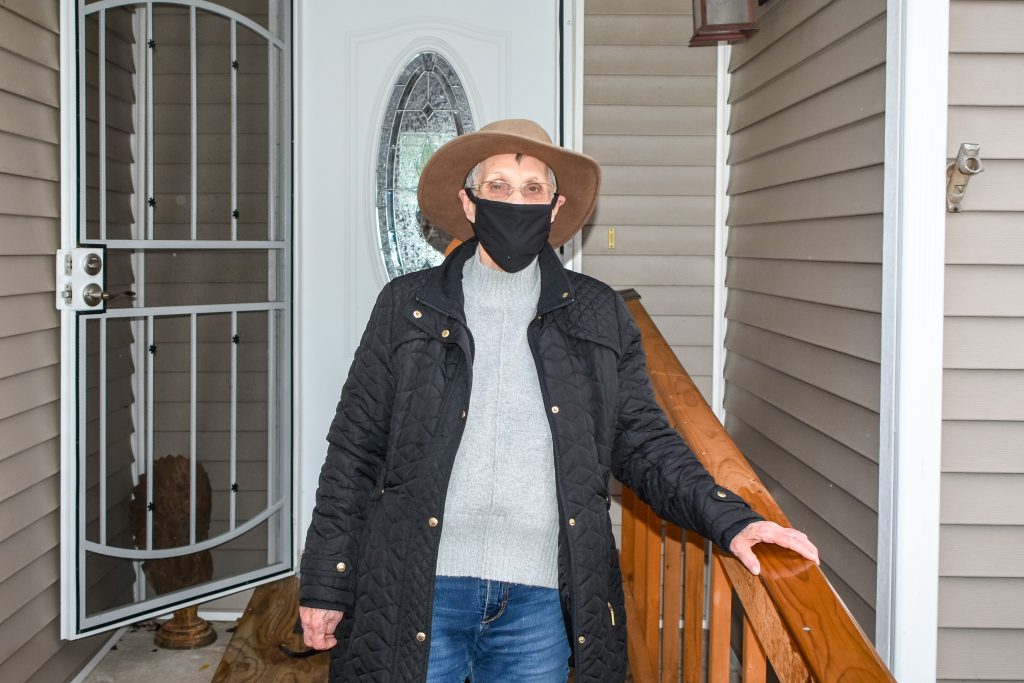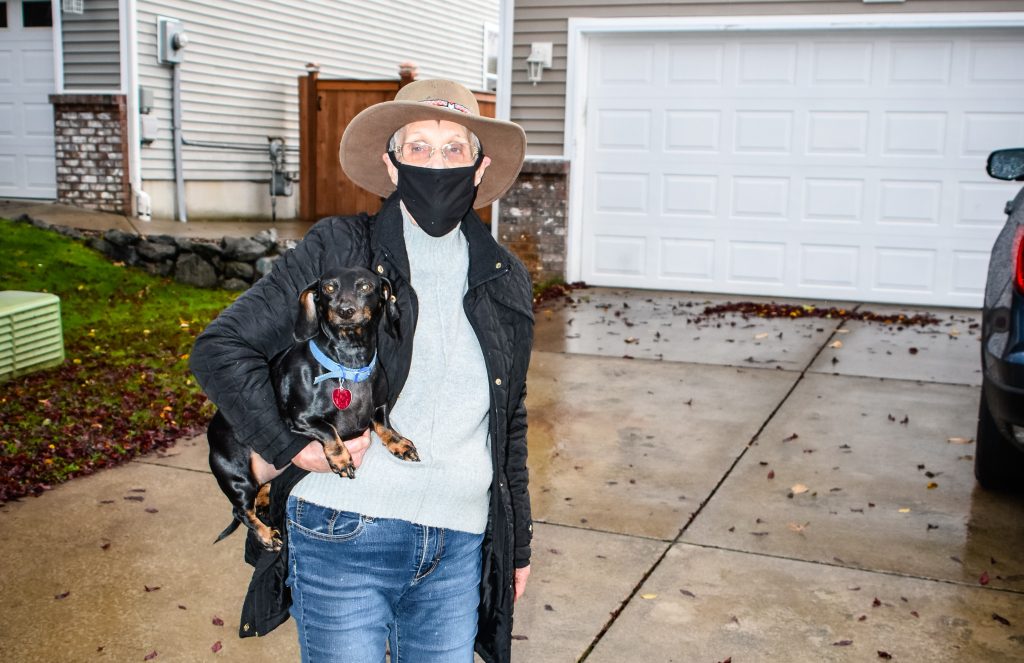November was Family Caregiver Month, so before it gets too far in our rear view mirror, I want to share a bit about our Family Caregiver Support Program (FCSP), and highlight a very special caregiver here in Pierce County.
A couple of weeks ago, I had the privilege to speak to Pat Schlager, one of the hundreds of family caregivers we support across the County. To highlight the important work our family caregivers do each day I’m sharing Pat’s story.

My first impression of Pat was that she’s a matter of fact, 80-year-old woman who does what needs to be done and doesn’t spend too much time worrying or complaining. Pat’s been the primary caregiver for her husband, Stanley, since his dementia advanced to the point where he could not care for himself. Before that, Pat and Stanley owned and operated an 80-acre ranch in Goldendale, where they raised cattle, horses and chickens. They bought the ranch after Stanley’s long career as an ironworker in Seattle. He was one of those fearless laborers you’d see walking across the narrow beams high over the city. Stanley loved the job, but over time the lifting and positioning of iron beams took a toll on him and he developed severe arthritis.
As Stanley’s dementia worsened, they decided to move to Pierce County in 2015 to be closer to state-of-the-art medical services, their 4 children and 17 grandchildren. Pat found out about the FCSP after calling our Aging and Disability Resource Center (ADRC) looking for support.
The ADRC serves as the front door for local aging and disability services. It is staffed with experts who will assess your needs and work to find you the best services and assistance. Caregivers are offered a menu of services based on their needs, at varying levels of support, and are often introduced to other Human Services programs they may find helpful, like energy assistance.
Respite services are a key component of the program, allowing caregivers to take a break and practice self-care. The services are also based on a sliding scale fee to include caregivers of all income levels. FCSP participants may receive durable medical equipment, like a shower grab bar, to help with balance and mobility. They are also encouraged to attend free training opportunities offered year-round by the ADRC, featuring topics such as dementia, Medicare, Social Security and advance care planning.
One thing Pat wanted to share about her experience as a caregiver is that it is a lot of work – way more than you’d ever imagine! If she isn’t caring for Stanley, you can bet Pat is doing laundry, cooking, cleaning or taking care of the other man in her life, her dachshund.

Aside from household tasks, she helps Stanley with activities of daily living, coordinates his medical care and administers 35 medications regularly, including two insulin shots every day. Juggling caregiving responsibilities such as healthcare visits and social engagement were exhausting even before the COVID crisis and now caregivers face new challenges. Her advice for anyone new to caregiving is to be ready for the unexpected and to have lots of patience.
Although the work of a caregiver is hard and never-ending (you don’t get to “go home,” because you are home), Pat appreciates the respite hours she receives through the FCSP. Twice a week, for a total of six hours, a Home Health Care provider cares for Stanley. Pat uses this time to go grocery shopping, run errands, grab lunch with her daughter, or just take a nap! She shared that there’s little opportunity for relaxation when you are a caregiver, so she takes advantage of the time to herself.
“When you are married, you do what you have to do, sweetie, with a good dose of hope and prayers.” – Pat
If you are concerned about a loved one or their caregiver, our aging experts say the best thing to do is to TALK WITH THEM! Discuss your concerns, acknowledge you want to help and let them know support is out there. Many people who care for loved ones don’t consider themselves caregivers. They often view it as part of their ‘duty’ as the loving wife, husband, son, etc. No one wants to feel like a burden, and it can be difficult to ask for help, but it’s important both the caregiver and care receiver are interested in services. After both parties are on board, speak with your doctor to rule out any medical issues. From there, the next best thing to do is call the ADRC at 253-798-4600.
Thank you, Pat, for sharing your story with me, and thank you to all our family caregivers across Pierce County. The important work you do every day is not recognized often enough. Caregiving is a difficult job and this year has brought the added challenges and stress of caregiving during the COVID-19 pandemic. It is more important than ever to know that you are not alone and the FCSP is here to support you. We celebrate you during National Caregiving Month and always.

P.S. If you’re inspired by Pat’s story and want to get involved, consider joining our Aging and Disability Resources Advisory Board. ADR Advisory Board members collaborate with ADR to give input on community needs and priorities to improve services for local seniors, adults with disabilities and family caregivers like Pat.
